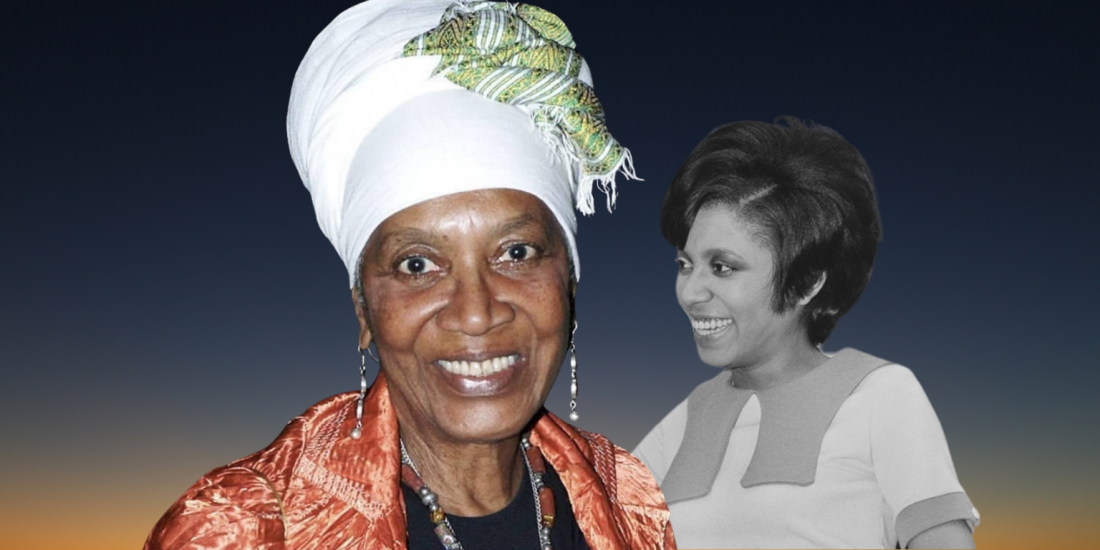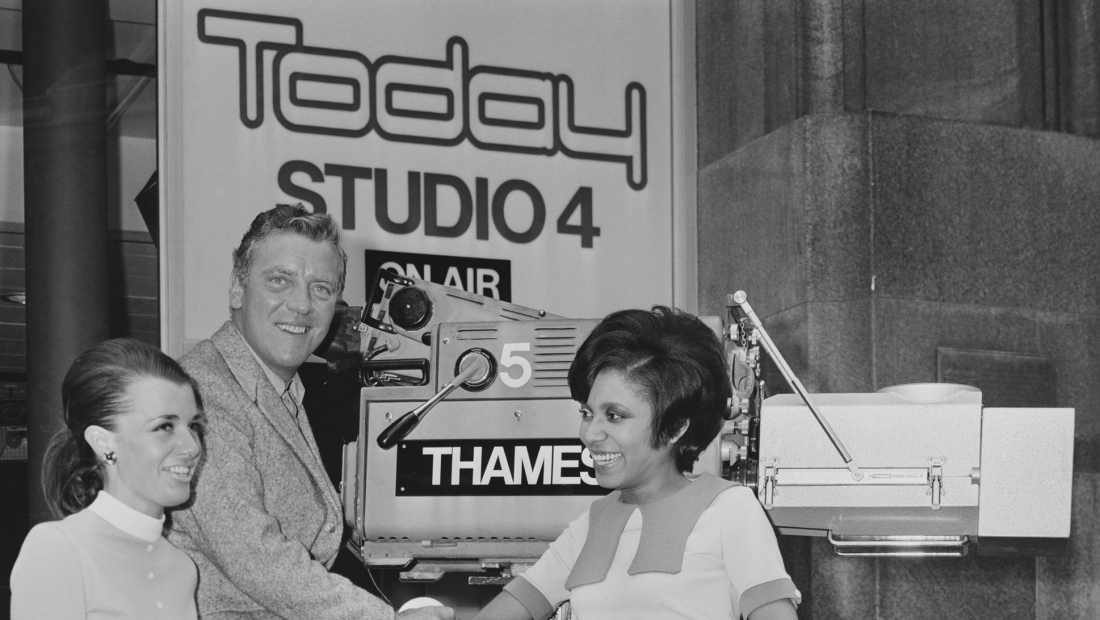In honour of a decades-long journalism career and being Britain’s first Black news broadcaster, Barbara Makeda Blake-Hannah now has an journalism award in her name.

You might have only learnt of her name for the first time in August, when the Press Gazette announced a new generation of Black journalists would be able to apply for the Barbara Blake-Hannah prize at the 2020 British Journalism Awards. However, Barbara’s byline has appeared in publications since her writing career began as a teenager in Jamaica, where she was born and has returned to live.
Barbara spent nearly 10 years working in England and paved the way for the likes of Moira Stuart, who was widely regarded to be the UK’s first Black female news reader. More recently, Barbara, 79, has recalled the despicable racism she encountered as a Black face on-screen and the experiences she wrote about in the Guardian in 2008, like being shown reader’s letters calling for “that N-word” to be taken off TV.
This racist disapproval is what led to her nine-month contract with the then Thames TV being terminated, but it didn’t stop there. However, more than 50 years on, her international journalism and work in PR speaks for itself and Melan wants to honour this media veteran too.
Barbara was Britain’s first Black TV journalist, presenting on Thames TV’s daily evening show
Barbara was Britain’s first Black TV journalist, presenting on Thames TV’s daily evening show, Today with Eamonn Andrews. When a past Guardian article left her name from a Black History Month timeline, she wrote in to educate readers on how she broke through in 1968 and the racism that sadly ended her British TV career.
It was Jamaican crime film, The Harder They Come, starring reggae star Jimmy Cliff, that led Barbara back home. Director Perry Henzell and Chris Blackwell, the founder of Island Records, gave her a welcoming job offer as PR officer for the landmark film. She accepted and returned to Jamaica in 1972.
Barbara followed her late father Eyrell ‘Evon’ Blake’s footsteps into journalism. He laid a very strong foundation having worked in Panama and at several Jamaican newspapers before founding his own publications – Spotlight in 1940 and New Day in 1953. It was at New Day that Barbara secured her first editorial job as a typist and “sometime journalist,” she wrote in an obituary for her dad.
Barbara followed her late father Eyrell ‘Evon’ Blake’s footsteps into journalism.
When her father was ejected from the running of magazine Spotlight by his staff, money ran low and Barbara had to leave school (while her sister stayed) shortly after turning 17. Evon’s vision for his daughter was for her to become Jamaica’s best secretary, so she spent a year at the Jamaica School of Commerce.
The Jamaica Black Film Festival was Barbara’s first major creation in 1974, which lasted two years, but set the stage for her future. She went on to assist several film festivals being set up, particularly as the executive director of the Jamaica International Reggae Film Festival and the Jamaica Film Academy.
As a conscious Black scholar, Barbara is all about love. Civil rights leaders and various political and social movements, very similar to what’s happening now, raised Barbara’s consciousness as a Black woman. She speaks about how racism stops us from living in love and in Patois, calls herself a “dawta of Jah,” so a ‘daughter of God’.

Her greatest achievement, Barbara told the Press Gazette, was being one of eight independent senators in the Jamaican parliament between 1984 and 1987. She was the “only Rasta who has ever sat in the Jamaican parliament” and it was writing which landed her the position.
Barbara has dedicated a large portion of her career to promoting the Rastafari culture and religion as a follower herself. Race, Rhetoric, Rastafari was an award-winning documentary for Channel 4 on British race relations, released through Barbara’s own Jamaica Media Productions in 1982. There were also books – Rastafari: The New Creation and novel Joseph: A Rasta Reggae Fable.
In 2018, Barbara was honoured by the Jamaican Government with an Order of Distinction for her contribution to culture and cultural heritage preservation.
In 2018, Barbara was honoured by the Jamaican Government with an Order of Distinction for her contribution to culture and cultural heritage preservation. It was reported that she found out while scrolling Facebook. A few years earlier the author and filmmaker was inducted into the Caribbean Hall of Fame for her contribution to the film industry.
As if Barbara doesn’t have enough job titles, she’s a teacher too. Her lectures on Jamaican culture have been heard at universities in New York, the United States Virgin Islands, Austria and across the Caribbean. Her son Makonnen Hannah also benefited from his mum’s teachings during the years he was homeschooled. She then published a book to inspire other parents disillusioned with mainstream schooling.
While forging a path of success for the future, it’s important we remember the foundations on which our history sits. Thank you, Barbara Makeda Blake-Hannah. We salute you.












